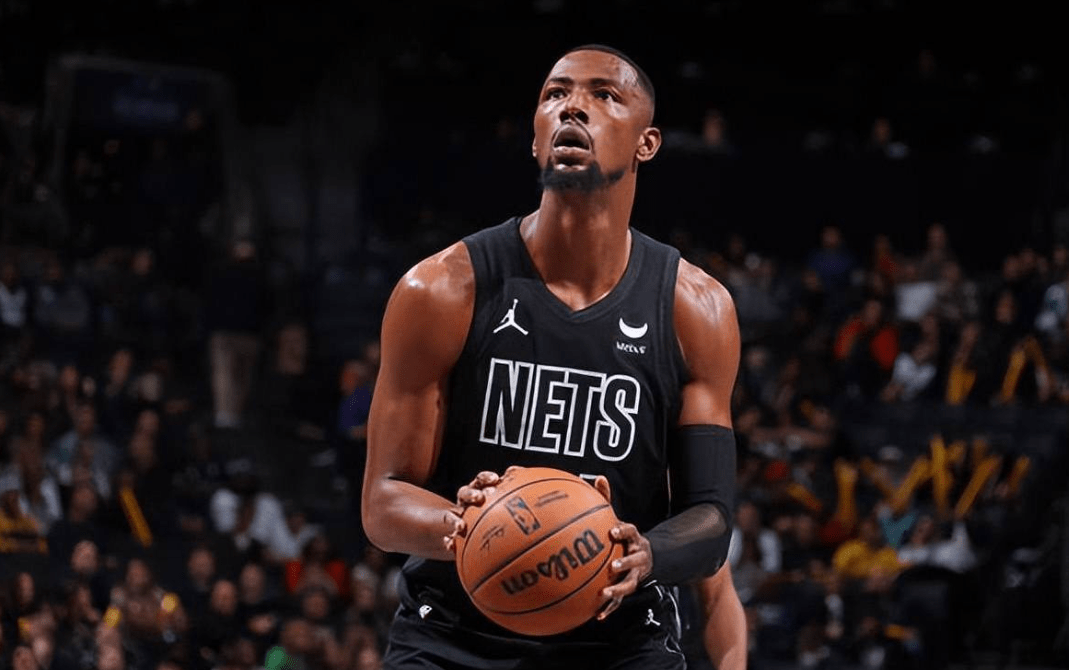Shanxi Fenjiu Men's Basketball Team's operations have once again caught people's attention, with foreign aid Lamon playing a "farewell game" shortly after taking the court, followed by the swift re-signing of former NBA player Harry Giles. This rapid adjustment naturally raises curiosity: Can Shanxi rely on this returning big man to make a breakthrough this season? Although their regular season performance has been impressive, will the constant changes in foreign aid become a ticking time bomb? Let's delve into the story behind this "gamble."

Lamon, the foreign aid in question, truly arrived quickly and left just as fast. As an outside player, his performance in the CBA was somewhat disappointing, averaging only 5.5 points per game and even scoring zero in two matches. In the CBA, where high standards are set for foreign players, it's not an exaggeration to say that any college league's main player might perform better.

It cannot be denied that Lamon had some ability to break through, but the problem lies in his overly individualistic style, which was completely incompatible with Shanxi's team tactics. This is why, during his four games with Shanxi, he did little more than lower the morale of fans, bringing no significant change to the team. Ultimately, Shanxi's management made what could be called an "unfeeling" decision: to cut Lamon and bring back Giles, who they had worked with a year prior.

This is akin to firing your usual chef right before the end of the year because the meal lacked flavor, then immediately rehiring last year's chef who excelled at making braised pork. After all, the CBA court offers little room for waiting or trial and error; players who are merely "average" are destined not to go far.

Giles' name is familiar to many seasoned basketball fans. He was a first-round pick in the NBA and, despite not achieving superstar status, he has had his moments of brilliance, such as scoring 20 points and grabbing 7 rebounds in a single game. His versatile style allows him to play both inside and out, executing fast breaks after screens. From a capability standpoint, he undoubtedly possesses the hard power to compete in the CBA. During his previous stint with Shanxi, he averaged 17.1 points, 9.1 rebounds, and 1.3 blocks per game, which are certainly "coveted" statistics.

However, Giles is not without his issues. He suffered a serious knee injury in college, which once forced him away from the court. Many NBA scouts mentioned him with regret, saying, "If not for the injuries, his potential would have been much greater." Although he has gradually recovered his form since his return and found his place in European and Asian leagues, the shadow of injury does not dissipate entirely, making Shanxi's decision to re-sign him a "hidden gamble."

In fact, Shanxi's lineup changes this season can be described as masterful. Not only was Giles replaced at the beginning of the season, but another interior foreign aid was also quickly substituted, before finally settling on the current interior player Diawara. At first glance, these foreign aid adjustments seem somewhat extravagant, but insiders can discern the intention: Shanxi's goal this season is very clear – not only to enter the playoffs but also to aim for the finals.

Some may think they are being too ambitious, considering they were consistently mid-table in previous years. However, it's not difficult to understand; Shanxi's lineup this season already has competitiveness, coupled with continuous efforts to introduce high-level foreign aid, keeping them consistently ranked in the top four. This contrasts with teams that only pursue playoff entry.

More importantly, the CBA has restrictions on the use of foreign aid. Each game has limited playing time for foreign players, meaning a team cannot solely rely on one foreign player to lead the charge but must instead have a balanced combination of inside and outside players to ensure stability throughout the game. Giles' addition fortuitously strengthens Shanxi's previously insufficient firepower in the interior, paving the way for higher goals.
Tactically, Giles' technical characteristics are a perfect fit for Shanxi. His pick-and-roll cooperation and rebounding abilities are clearly more satisfying to coaches than Lamon's more penetration-oriented style. It's well-known that Shanxi's strategy this season focuses on "fast-paced offensive and defensive transitions," emphasizing overall teamwork, and Giles can provide significant assistance whether participating in low-post offense or creating space for the perimeter.
Lamon's issue stems from his overly individualistic style, overly reliant on personal performance, which is fundamentally incompatible with a system that requires positioning and team coordination. Giles' advantage lies not only in his technical skills but also in his experience working with Shanxi, naturally heightening expectations for his performance upon his return to the CBA.
In recent years, Shanxi has shown potential as a "disruptor," with both their lineup construction and foreign aid configuration demonstrating their determination to shed the label of a "mid-table team." Previously, they brought in the then-top CBA foreign aid Franklin, revitalizing the team's offense and even becoming a formidable opponent that strong teams in the league had to take seriously.
However, the path of a "dark horse" is never easy. Unlike traditional powerhouses like Guangdong and Xinjiang, Shanxi needs more consistent performances to truly defeat strong opponents in the playoffs. And Giles, at this point, is their biggest variable – if he can fully integrate into the team and deliver expected performances, Shanxi's "dark horse" identity might reach a new stage; but what if things don't go according to plan? If there are issues with adaptation or further injuries to foreign aid, they may face even greater risks.
Many experts have pointed out that the CBA's requirements for foreign aid performance are getting higher and higher. Players like Lamon, who performed decently in European leagues, couldn't establish themselves in the CBA, reflecting the overall improvement in the level of competition. Data shows that Shanxi's average rebound ranking was eighth in the league before Giles joined, but their scoring efficiency ranked in the top four, indicating problems with interior contention. If Giles can maintain his rebounding and blocking levels from last season, Shanxi will see a significant improvement in their statistics.
Now that they have re-signed Giles, Shanxi has decided to "recall reinforcements." Whether Giles can once again shoulder the burden will determine how high this "dark horse" can go in the future. And all of this, only time will tell.